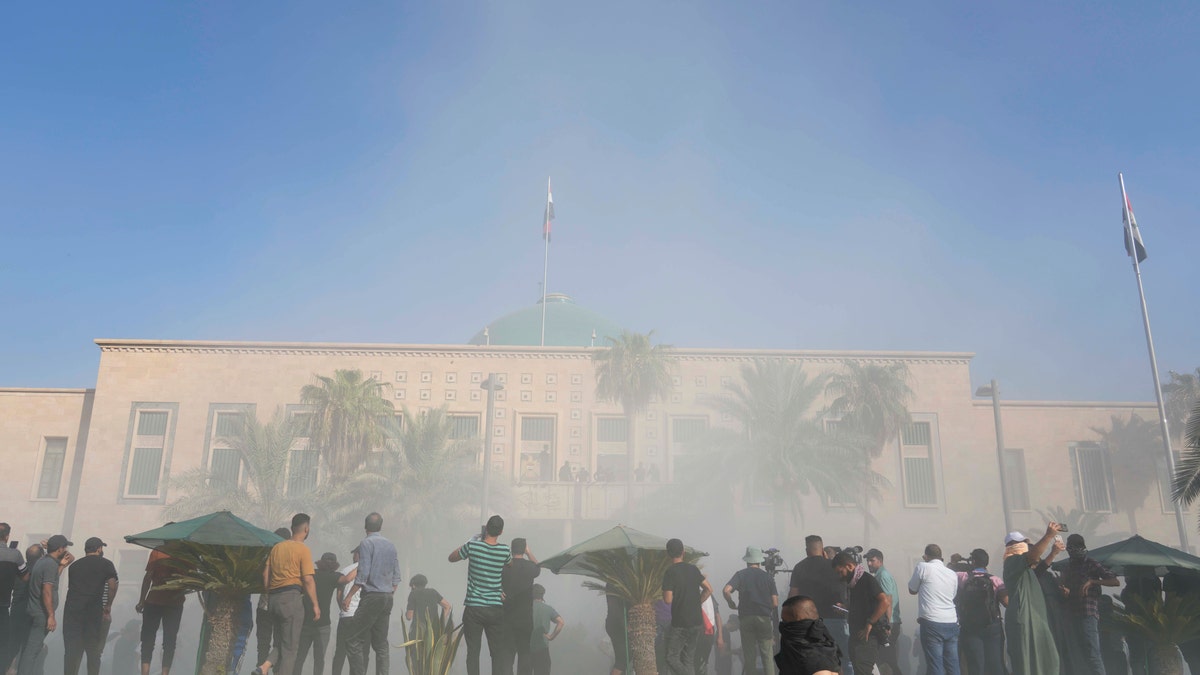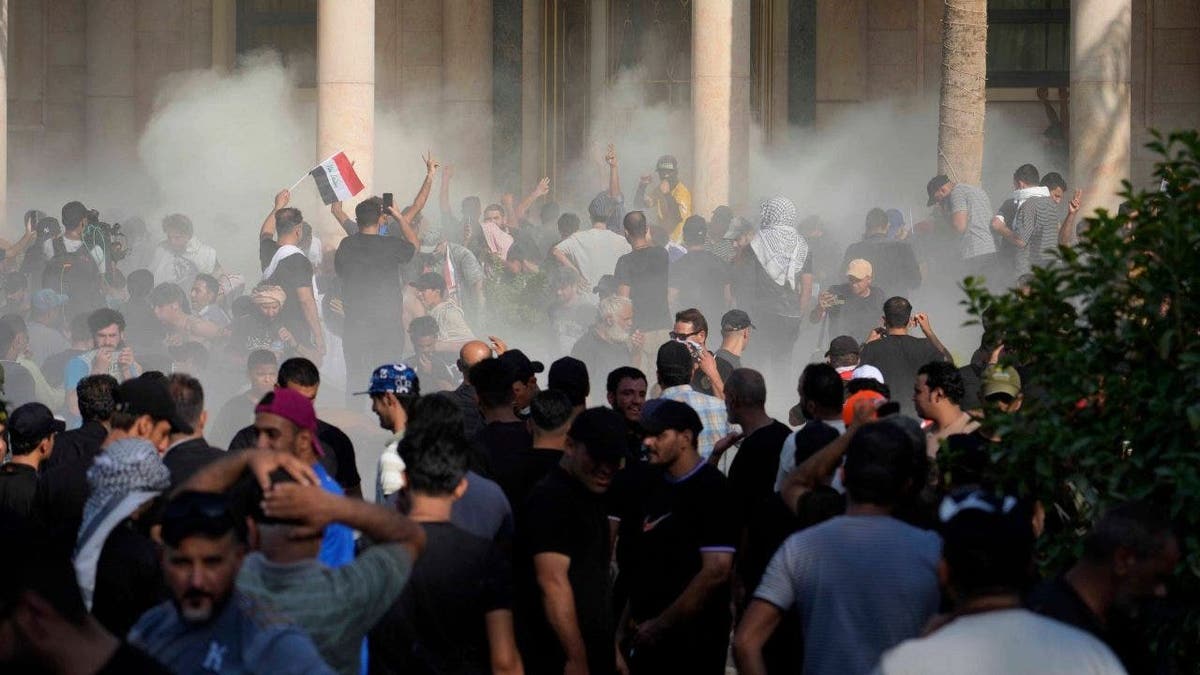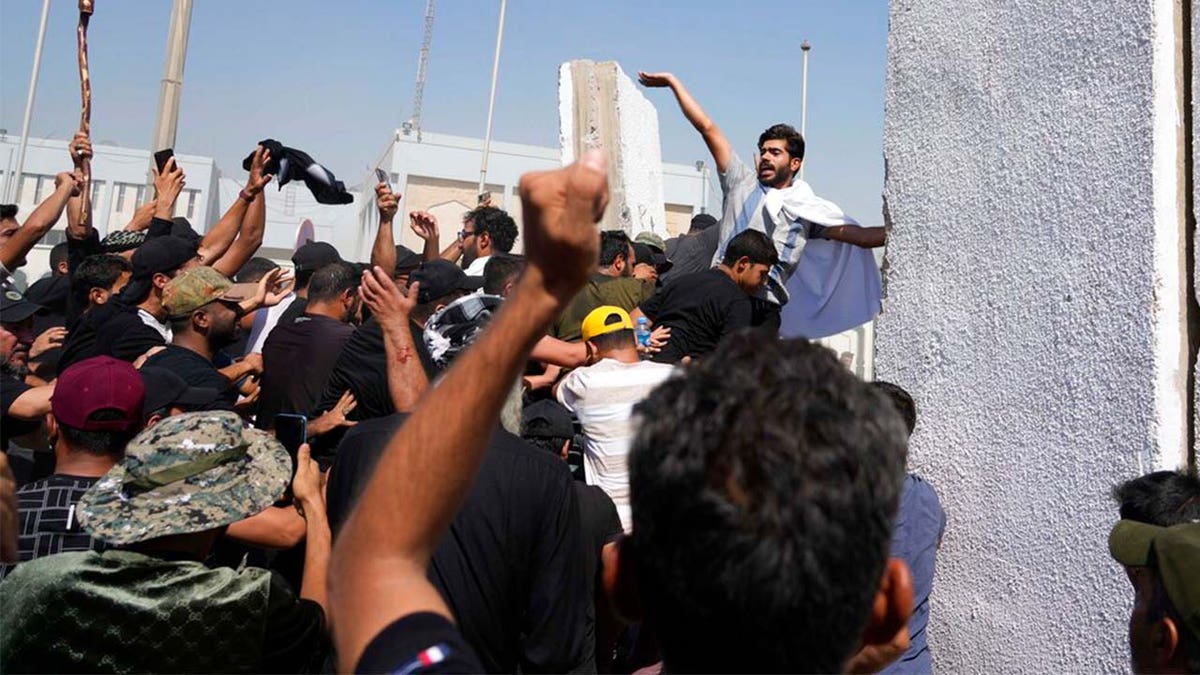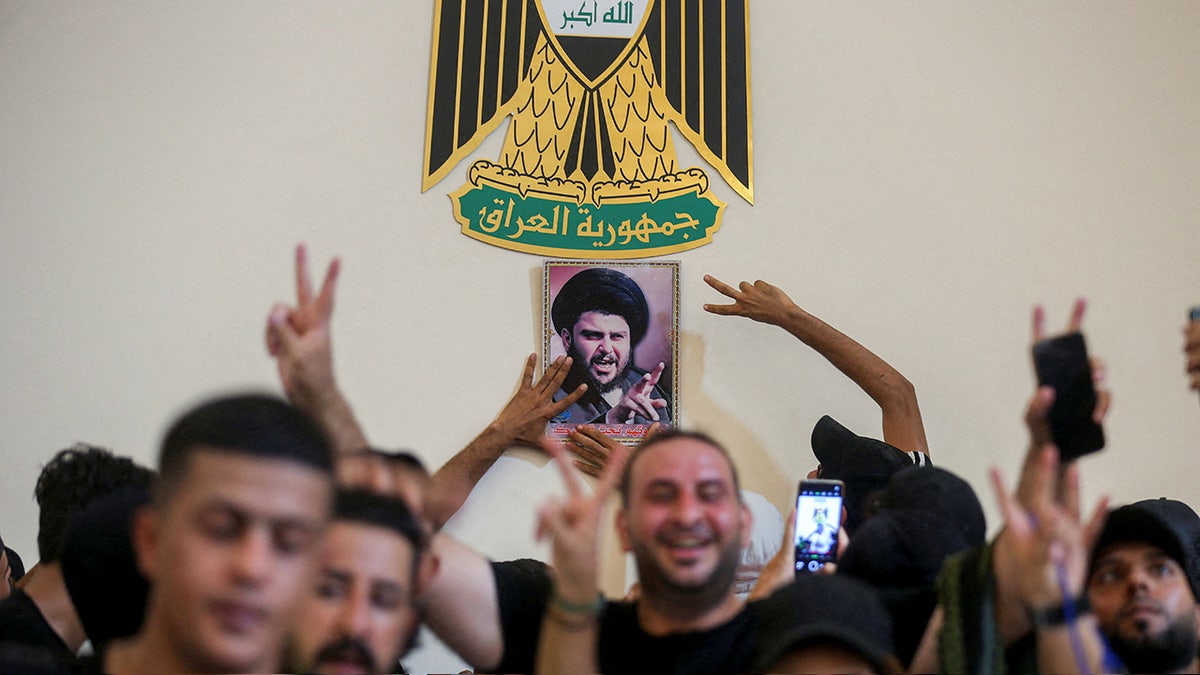Former CIA agent: Iran is supporting terrorism
Former CIA Station Chief Dan Hoffman discusses his thoughts on Biden's Iran nuclear deal and the threat that Iran poses in the region
On the eve of a potential nuclear deal with neighboring Iran, Iraq is in chaos – yet again. But this time, in what many Iraq analysts consider one of the most serious challenges yet to Iraq’s sovereignty and preservation of the state, Washington seems to have been missing in action.
As David Schenker, a former Assistant Secretary of State for the Near East under former President Trump wrote a week ago, senior State Department and National Security Council officials visited Iraq only twice in the nearly nine months between the national election last October and the most recent outbreak of violence this week.
Plus, Secretary of State Anthony Blinken has made only a few publicized calls to key Iraqi decision-makers to try to ensure that a pro-Western, anti-Iranian government emerges in Baghdad. Although Washington has had a seasoned ambassador in the Iraqi capital since June, it is unclear how much backing Alina Romanowski has had from Team Biden.
BAGHDAD, IRAQ VIOLENCE LEAVES AT LEAST 30 DEAD, CLERIC TELLS PROTESTERS TO WITHDRAW
The latest round of violence this week followed an announcement by the influential Shiite cleric Moqtada al-Sadr that he was withdrawing from politics. At least 23 of his followers were killed and more than 100 wounded Monday when they attacked the presidential palace in the so-called Green Zone and clashed with rival Shiite groups as deadly fire and mortar rounds rocked Baghdad.
Several experts on Iraq have complained about the apparent lack of American efforts to secure the emergence of a stable, pro-western government in Baghdad.
A tense calm was restored and a curfew lifted Tuesday after Sadr ordered his supporters to withdraw and apologized to the Iraqi nation for the bloodshed.

Iraqi security forces fire tear gas on followers of Shiite cleric Muqtada al-Sadr protesting inside the government palace grounds, in Baghdad, Iraq, Monday, Aug. 29, 2022. Al-Sadr, a hugely influential Shiite cleric announced he will resign from Iraqi politics and his angry followers stormed the government palace in response. The chaos Monday sparked fears that violence could erupt in a country already beset by its worst political crisis in years. (AP Photo/Hadi Mizban)
Sadr, whose militia battled American forces during the American occupation of Iraq after the 2003 invasion, also has an uneasy relationship with Iran.
Once an Iranian ally, Sadr, 48, has repositioned himself as an Iraqi nationalist determined to curtail both U.S. and Iranian influence in Iraq's internal affairs and to end corruption. The most influential Shiite religious figure openly involved in politics, Sadr has threatened to quit politics several times before, but has always returned to the political fray.
IRAN SIGNALS SOME ISSUES AROUND REVIVED NUCLEAR DEAL STILL NEED TO BE NEGOTIATED AS DEADLINE LOOMS
Several experts on Iraq have complained about the apparent lack of American efforts to secure the emergence of a stable, pro-western government in Baghdad. Iraq has been without a government since October, when candidates loyal to Sadr won the largest number of seats in the Iraqi parliament, beating rival Shia groups backed by Iran.
To prevent Sadr and his Kurdish and Sunni political allies from selecting a prime minister and cabinet, the Iran-backed opposition used its control of Iraq’s corrupt judiciary to require, for the first time, that a two-thirds supermajority be required to form a government. Unable to reach that threshold, Sadr’s members of parliament resigned en masse in June. Their seats were given to parties aligned with Iran.

Iraqi security forces fire tear gas on the followers of Shiite cleric Muqtada al-Sadr inside the government Palace, Baghdad, Iraq, Monday, Aug. 29, 2022. (AP Photo/Hadi Mizban)
The Biden administration, for its part, insists that it has been trying to help Iraqis end their political logjam, but quietly, behind the scenes. "This is on the Iraqis, not the Americans," agreed David Petraeus, the retired U.S. Army general who headed the multinational forces in Iraq and went on to lead the CIA.
Asked Monday about complaints by Schenker about the administration’s apparent indifference to the political deadlock and growing Iraqi violence, Vedant Patel, the State Department’s principal deputy spokesman, said that the administration has "consistently reaffirmed the U.S. Government’s commitment to a strong, stable, and prosperous Iraq."
CLICK HERE TO GET THE OPINION NEWSLETTER
But critics complain that Washington has not pushed hard enough to prevent Iran’s interference in Iraqi affairs. James Jeffrey, a former ambassador to Iraq who served under former President Trump as a special representative to Syria, said that former Secretary of State Mike Pompeo had given Iraqi politicians a clear choice – either side with Iran and risk America’s substantial military, economic and political support, or push back against Iranian encroachment.

Supporters of Shiite cleric Muqtada al-Sadr try to remove concrete barriers in the Green Zone area of Baghdad, Iraq, Monday, Aug. 29, 2022. (AP Photo/Hadi Mizban)
"This administration has refused to do anything like that," said Jeffrey. "Rather, it is following a policy similar to that in Lebanon, continuing support a system as it ever more falls into the hands of Iran."
The apparently low-key U.S. reaction to Iran’s growing interference in Iraqi politics has mystified some Middle East experts, especially after President Biden’s vow during his trip to Saudi Arabia last month not to "walk away and leave a vacuum to be filled by China, Russia, or Iran."
The mystery, said Jeffrey, is why, after Biden put so much effort into a trip aimed at reassuring Israel and Arab allies of America’s determination to contest Iran in the region, "we are doing so little in a place as important as Iraq."
CLICK HERE TO GET THE FOX NEWS APP
Jeffrey, for one, speculates that policy differences within the administration may explain the gap between the administration’s rhetoric and its actions. But Schenker sees other possible explanations. "It might be a band-width issue," he said in an interview.

Supporters of Iraqi populist leader Moqtada al-Sadr protest inside the Republican Palace in the Green Zone in Baghdad, Iraq August 29, 2022. (Reuters)
The administration could be stretched thin by the war in Ukraine, China’s threat to Taiwan, and other competing foreign and domestic challenges. Or, he said, Biden may be reluctant to challenge Iran openly in Iraq since his priority is reviving the nuclear deal with Teheran that former President Trump unilaterally scrapped. But if, as reported, U.S. and Iranian negotiators are on the verge of resuscitating the nuclear deal, Schenker added, "you would think that an Iran dealing with political setbacks would be more conciliatory in negotiations rather than an Iran feeling its oats."


